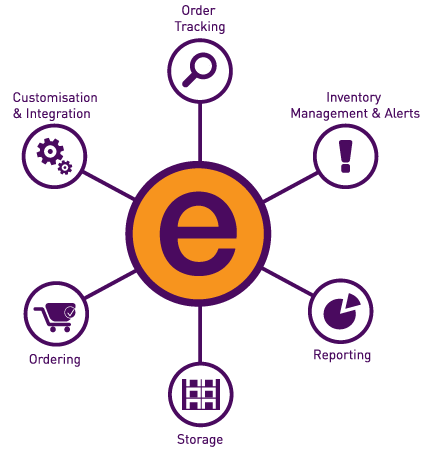Ecomail - Eco Glossary
To help ensure everyone is talking the same language, please find below a list of useful terms and definitions.
Biofuels – Renewable energy produced from organic matter such as wood, waste and alcohol fuels.
Biodegradable – The ability to be decomposed by bacteria and/or other living organisms.
Biodiversity – The propensity in ecosystems (when untouched) to have a vast variety of plant, animal and other living species. Biodiversity encompasses habitat diversity, species diversity and genetic diversity.
Blue Angel – Originating from Germany, Blue Angel is a label for products and services that are environmentally friendly. Its goal is to inform consumers about environmentally friendly products, assessing the product from manufacture, disposal as well as product use.
Chain of Custody – The term, ’chain of custody,’ refers to tracking the custodianship of wood and wood products along the supply chain from harvest to distribution of the final product. The purpose of a chain of custody system is to ensure that certified and other forest products originated in a responsibly managed forest. Special recordkeeping requirements relating to the purchase, shipment and delivery of products must be maintained.
CHP – stands for Combined Heat & Power. Rather than drawing energy from the grid, CHP is the use of a heat engine or power station which can simultaneously generate both heat & electricity on site. Many paper mills use CHP units; they are beneficial due to the fact that they have lower emissions to air than power stations.
CSR – Stands for Corporate Social Responsibility. CSR is the voluntary commitment made by an organization to conduct themselves in an ethical manner and to contribute to economic growth. This obligation also extends to improving the quality of life of its employees, their families, the local community and society at large.
Dioxins – A chemical compound that has been link to the production of PVC and paper manufacturing. link to cancer and hormone disruption. Dioxins are released during the production of PVC and some papers, though both the plastic and paper industry have had implemented major reductions to the release of dioxins in recent years.
DIP – De-inked pulp. Post consumer recycling process where the carbon and ink are removed from the paper pulp.
ECF – Elemental Chlorine Free pulp. Pulp bleached without the use of any elemental chlorine. Though chlorine compounds, like chlorine dioxide, may be used in the bleaching process.
Eco – prefix for ecology, ecological, indicating ecological concern or benefits.
EMAS - Eco Management & Audit Scheme is a voluntary initiative devised to improve and recognise the environmental performance of a company on a continuous basis. Companies must produce a public statement on performance verified by an external assessor.
Environment – living or non living habitat, social surroundings.
EU – Eco label – Awarded to products with a reduced environmental impact compared with other products in the same product group. Recognisable by its distinctive flower logo.
FSC – Forest Stewardship Council is an international organisation that endorses and develops standards for responsible forest management. FSC accredited products only source materials from well-managed forests, by buying stock with the FSC label you are endorsing the growth of responsible forest management world wide.
Global Warming – Is the overall increase in world temperatures, which may be caused by greenhouse gas emissions trapping extra heat inside the Earth’s atmosphere. Gases that contribute to global warming include carbon dioxide, nitrous oxides, methane, chlorofluorocarbons (CFCs), and halocarbons (the substitutes for CFCs).
Greenhouse Gases – Just as warmth is trapped inside of a greenhouse, atmospheric gases such as carbon dioxide and water vapors trap the rays from the sun. This makes the Earth warmer, ergo the label ‘greenhouse gases’.
IPPC – The IPPC is an international treaty to secure action to prevent the spread and introduction of pests of plants and plant products, and to promote appropriate measures for their control. It is governed by the Commission on Phytosanitary Measures (CPM) which adopts International Standards for Phytosanitary Measures (ISPMs). The CPM has confirmed the IPP as the preferred forum for national IPPC reporting and the exchange of more general information among the phytosanitary community. The IPPC Secretariat coordinates the activities of the Convention and is provided by the FAO.
ISO 140001 – Developed by the International Organization Standardization, ISO 14001 are the international standards for organising and improving environmental management systems.
Life Cycle Assessment /Analysis – (LCA) models the complex interaction between a product and the environment from its inception to its disposal. It is also known as Ecobalance.
OGF – OGF stands for old growth forestry. There are no set definitions for OGF, many groups have their own interpretations, but there are characteristics that are evident throughout.
PEFC - Programme for the Endorsement of Forest Certification, is a common framework for national and regional certification schemes.
Plantation – Estate for the cultivation of crops, specifically for timber and/or production.
Recycled Fibers – Paper and board that has been collected for reuse as raw fibre material in paper and board manufacture.
Recycle – Recycling is the practice of treating used or waste materials, and making it so it is suitable for re-use.
Renewable Energy – Energy sources that can be replenished e.g. wind, solar and geothermal energy and bio-fuels.
SFI – Combined of the American Forest and Paper Association, Sustainable Forestry Initiative’s primary principle is to guarantee ongoing renewable resources country wide.
Sustainable Development – development that meets the needs of the present yet does not compromise future resources for the next generations.
TCF – Stands for Totally Chlorine Free. It is pulp that is bleached without the use of chlorine or chlorinated chemical compounds.



